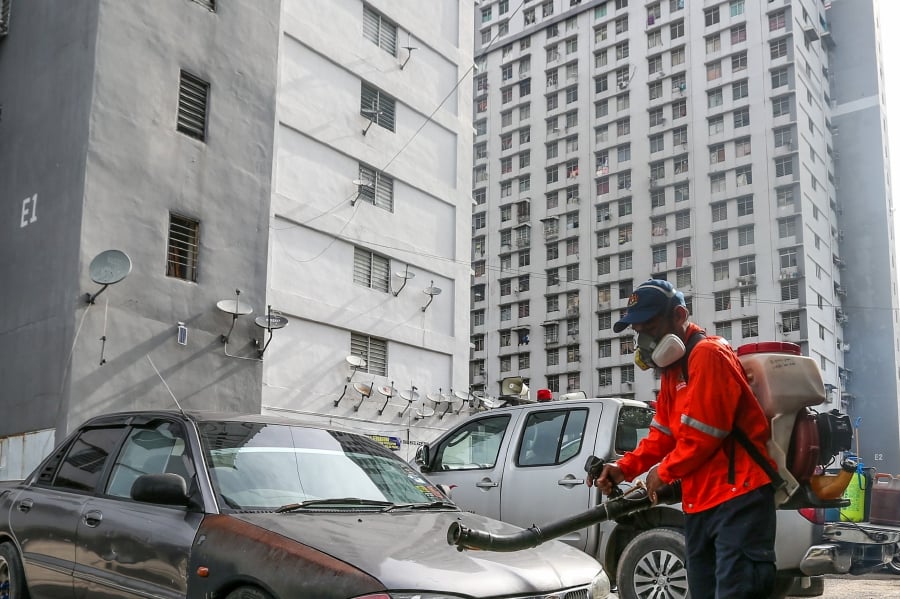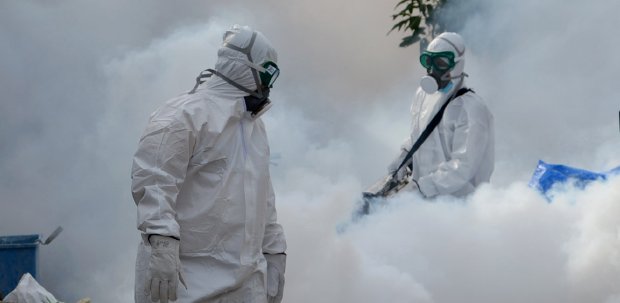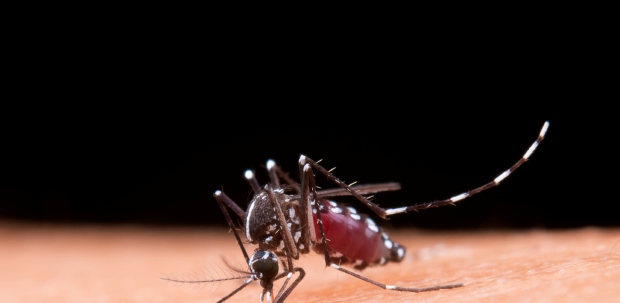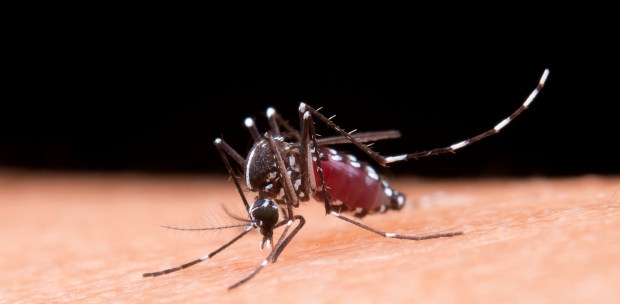EXPERTS have raised the alarm that a dengue fever epidemic is set to hit Malaysia starting this year — with cases expected to peak in 2024 and 2025 — and are urging authorities to strengthen interventions and the public to take preventative steps.
The Health Ministry reported that dengue fever cases up to epidemiological week 51 (up to Dec 24) were three times higher than figures seen during the same period in 2021.
Up to Dec 24, Malaysia recorded a cumulative 64,078 dengue cases compared with 25,794 for the same period in 2021 — an increase of 148.4 per cent — while 50 deaths were caused by dengue complications compared with 19 during the same period in 2021.
This uptrend, however, came as no shock to experts, who described the phenomenon as a "cyclical transmission of dengue fever" that surges every three to five years.
The recent increase in dengue cases is expected, said public health expert and epidemiologist Professor Datuk Dr Lokman Hakim Sulaiman.
"Based on observations over the past three decades (in Malaysia), severe dengue outbreaks occur every four to five years.
"Last year was the beginning of the next major outbreak, which I predict will peak between this year and 2025."
Dr Lokman is the Pro-Vice Chancellor of Research and director of International Medical University's Institute for Research, Development and Innovation. He also served as director of the Infectious Disease Research Centre under the Institute for Medical Research.
Dengue was first documented in Malaysia in 1902 and became a public health risk in the 1970s. Its first major outbreak occurred in 1973 (969 cases and 54 deaths).
Other major outbreaks were reported in 1998 (27,381 cases and 82 deaths), 2008 (49,335 cases and 112 deaths), 2015 (120,836 cases and 336 deaths) and 2019 (130,101 cases and 182 deaths).
Most dengue victims in Malaysia are between the ages of 15 and 49, and 80 per cent live in urban areas.
Epidemiologist and health informatician Professor Datuk Dr Awang Bulgiba Awang Mahmud of Universiti Malaya agreed, adding that the surge in cases was "hardly surprising" as dengue numbers normally went through an uptrend followed by a downtrend which is repeated over time.
He said this was due to the prevalent dengue virus serotype.
Dengue is caused by a virus of the Flaviviridae family. There are four distinct, but closely related, serotypes of the virus that cause dengue (DENV-1, DENV-2, DENV-3 and DENV-4), all of which can be found in Malaysia.
Infection with one DENV serotype provides immunity to that serotype for life, but not to other serotypes.
Thus, a person can be infected four times, once with each serotype. Later exposure to the remaining serotypes is associated with an increased risk of severe disease.
"Cases will decrease as immunity builds up to one serotype.
"However, this downtrend is not permanent, and an uptrend is likely with a new serotype," Dr Awang Bulgiba said.
Over the past five decades, dengue cases have increased by 30-fold globally, with half of the world's population now at risk.
According to the World Health Organisation, only nine countries had experienced severe dengue epidemics before 1970.
The disease is currently endemic in 129 countries, with 70 per cent of cases in Asia. About 390 million people are infected each year, with 96 million cases showing clinical symptoms.
A 2019 study published in Nature Microbiology predicted that the geographical range of dengue will expand to put more than six billion people — or 60 per cent of the world's population — at risk of infection by 2080.
Climate change, population growth, unplanned or rapid urbanisation, ecological disruption, inadequate sanitisation and increasing international trade and travel have been cited as contributory factors to the increase in dengue cases.
DENGUE IN A CHANGING CLIMATE
Environmental health scientist Professor Dr Jamal Hisham Hashim explained that the global dengue belt, which is bound by the 10°C and 10°C winter isotherms, has expanded into temperate regions of the northern and southern hemispheres due to climate change, putting 40 percent of the world's population at risk.
As a result, dengue has been found in temperate countries such as Japan and the Mediterranean, he said.
"This influences the population dynamics of the Aedes aegypti mosquito that transmits the viruses, which cause dengue, yellow fever, chikungunya and Zika.
"This has led to dengue becoming the fastest growing mosquito-borne disease worldwide, with an estimated 50 million cases and 20,000 deaths annually."
In Malaysia, Jamal Hisham said dengue tends to show seasonal variation, peaking during the dry southwest (May to September) and rainy northeast (November to March) monsoon seasons.
"A study showed that dengue cases soar with increased daily minimum temperature, increased bi-weekly accumulated rainfall, and decreased wind speed."
He also pointed out that the severe year-end flood in 2021 may have contributed to the lower dengue incidence in that year.
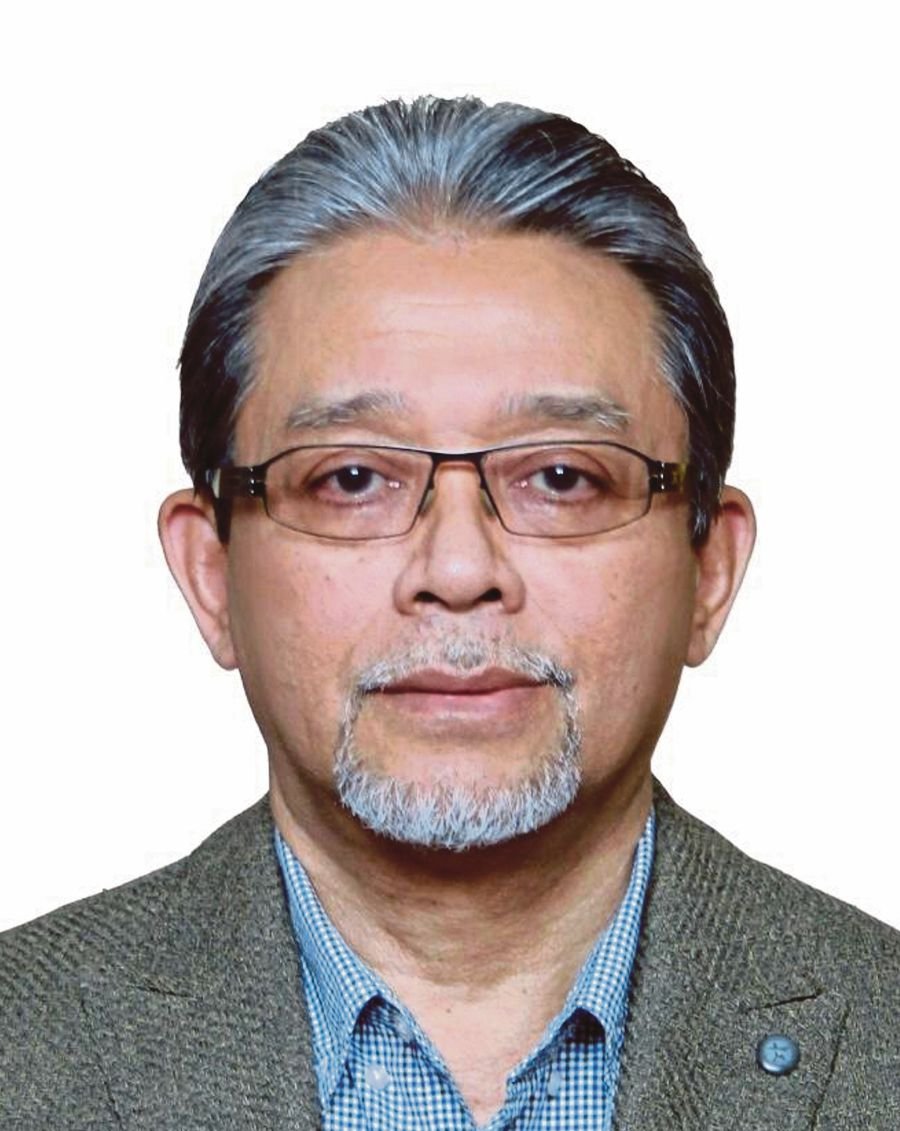
Only 26,365 dengue cases were reported in 2021, which was a 70.8 per cent decline from the 90,304 cases reported in 2020. Deaths from dengue also dropped by 86 per cent from 145 fatalities in 2020 to just 20 in 2021.
"Our study showed that severe flooding like the Kelantan flood of 2014 actually reduces dengue cases due to washing away breeding sites."
On this year's spike in cases, Jamal Hisham cited higher human mobility and activities due to the uplifting of most Covid-19 restrictions as well as higher rainfall as contributing factors.
Dr Awang Bulgiba explained that as regions get warmer due to climate change, the environment becomes more conducive to mosquito breeding, the primary method of transmitting dengue.
This, he said would explain to some degree, the spread of dengue from tropical and sub-tropical regions to temperate regions.
"Also, the rapid growth of air travel and globalisation leads to increased movement of people and goods from endemic to non-endemic areas.
"The spread of dengue to colder regions is partly due to global warming and also partly due to the tolerance of the Aedes albopictus mosquito to colder conditions and habitats.
"Globally, countries are also experiencing rapid urbanisation, as Malaysia has over the last 30 years. Urbanisation results in densely populated areas which make it easier for mosquitoes to spread the dengue virus."
Selangor, a densely populated and urban state containing over 5.79 million of the country's 32.78 million inhabitants, constantly records a high number of cases. It contributed more than 50 per cent of national dengue cases (34,502 cases and nine deaths) this year, as of Dec 10.
A GROWING THREAT
Researchers recently found that dengue-spreading mosquitoes — Aedes aegypti and Aedes albopictus — have mutated to become more resilient, adaptive and virulent, causing widespread epidemics.
They said this worrying development must be factored in when devising and implementing measures to control mosquito populations.
Malaysia keeps the number of dengue fever cases managable through the heavy use of insecticides to curb mosquito populations.
However, insecticide resistance in Aedes aegypti threatens the effectiveness of the vector control tool, said a 2017 paper published in PLOS Neglected Tropical Diseases.
"Genetic mutations in these mosquitoes in response to the widespread use of insecticides are likely the cause (of their heightened resistance)," Dr Awang Bulgiba said.
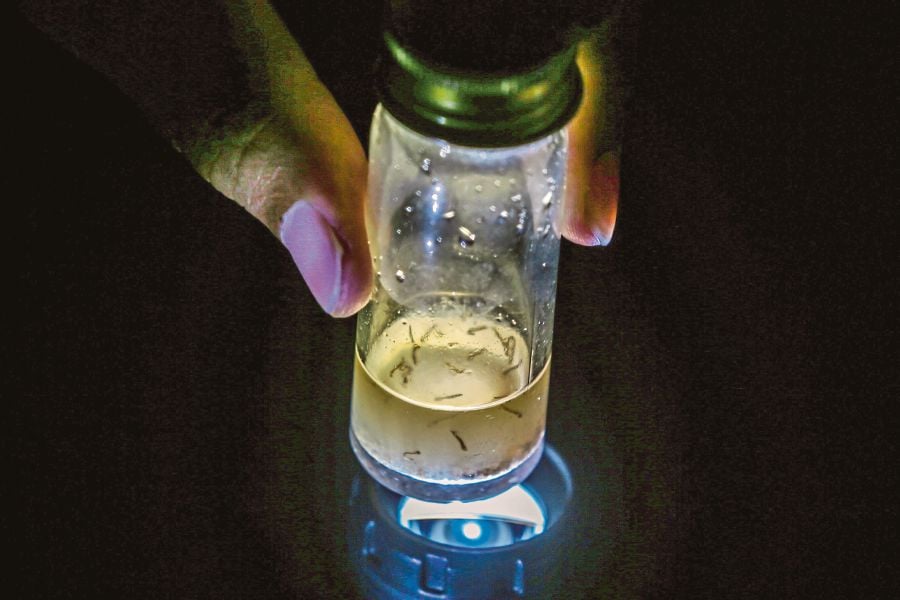
A 2022 study published in the Parasites & Vectors medical journal said Aedes aegypti mosquitoes were very resistant to insecticides currently in use and other solutions should be sought.
A 2021 paper in PLOS Neglected Tropical Diseases said the Aedes aegypti population in Senegal had a high metabolic resistance to widely used insecticides.
"It is only natural for simple creatures like insects, such as mosquitoes, to evolve and adapt to a changing environment," Jamal Hisham said.
"For Aedes mosquitoes, this changing environment is mainly due to urbanisation and climate change. They have adapted to breed in discarded containers, small puddles of clean water, gutters and clogged drains in urban settings."
MOSQUITO FOGGING QUESTIONED
Mosquito fogging is usually done in areas where dengue cases have been reported, to kill any adult mosquito that may be carrying the dengue virus.
While fogging would have some success in killing adult mosquitoes, experts warned that it was not enough to prevent dengue infections.
"Mosquito fogging has always been a short-term measure which targets only adult mosquitoes," said Dr Awang Bulgiba.
"It does not get rid of the larvae, nor does it get rid of mosquito breeding sites. So, while it does have its benefits, this is unsustainable nor an effective long-term vector-control strategy."
Jamal Hisham said fogging was a short-term vector-control measure to control the spread of a localised dengue outbreak.
He said destroying Aedes breeding sites and using larvicides would be a more effective strategy.
Dr Lokman said insecticides might kill mosquitoes, but a review of the scientific literature found "no evidence that fogging works".
"I never believed that fogging was cost-effective. During my time (in office), I had even reduced fogging to once from twice for each reported case.
"To me, we continue doing it because it is the politically correct thing to do," said the former deputy health director-general.
Public health expert Datuk Dr Zainal Ariffin Omar called for a review of the policy of frequent fogging, taking into account the hazards of fogging chemicals to the environment.
NEW DENGUE VACCINE: A PROMISING SOLUTION?
While no specific treatment is available for dengue fever, a solution could be in the works in the form of vaccines.
The New Straits Times recently learnt that Tokyo-based pharmaceutical company Takeda is seeking approval in Malaysia for its newly developed Qdenga (TAK-003) dengue vaccine.
"Takeda is committed to creating good access to this vaccine for a lot of dengue-endemic countries, including Malaysia," said Takeda Pharmaceuticals (Asia Pacific) Pte Ltd vaccines medical lead Dr Andrew Green.
"We are in talks with the Health Ministry and various universities, including Universiti Malaya. So we are working, collaborating very closely, not just with the government sector," he said on the sidelines of the 20th International Congress on Tropical Medicine and Malaria in Bangkok, Thailand, recently.
The Japanese drugmaker continues to progress regulatory filings in other dengue-endemic countries in Asia and Latin America.
Currently, only Dengvaxia (CYD-TDV) from Sanofi Pasteur has been licensed in some countries for dengue vaccination. Malaysia did not approve its use. About five more vaccine candidates are in development. Two of them, the one by Takeda and another by the United States National Institutes of Health and the Butantan Institute in Brazil, are now in Phase 3 trials.
Qdenga (TAK-003) was recently approved by the European Union, making it the second jab approved by the bloc. The two-dose live attenuated vaccine is authorised for use in the EU in people aged 4 and older to prevent any of the four serotypes of dengue, regardless of prior exposure to the disease.
Qdenga is also approved in Indonesia for use in individuals aged 6 to 45.
The vaccine is based on the DENV-2 strain of the dengue virus that has been weakened, with DNA from the other three serotypes added in. According to data from a pivotal trial, the vaccine can induce immune responses against all four dengue types.
In 2019, Takeda published the results of a trial across eight countries, involving roughly 19,000 children aged between 4 and 16. One year after immunisation, the vaccine had an efficacy of 80 per cent against symptomatic dengue and 95 per cent against hospitalisation.
In June, Takeda said 4.5 years after immunisation, the efficacy dropped to 61 per cent for symptomatic infection and 84 per cent for hospitalisation.
However, Dr Awang Bulgiba stressed that the Qdenga vaccine should be trialed before a decision was made on using it to vaccinate the population.
"We should also consider a proper cost-benefit analysis of vaccination as, generally, dengue rarely results in death or long-term disability."
He said Dengvaxia had some promise, but events surrounding the possibility of antibody-dependent enhancement (ADE) caused issues with its rollout in the Philippines.
"Whether ADE will occur with the Qdenga vaccine remains to be seen and Malaysia needs to be cautious of this possibility.
"Even though Indonesia intends to use Qdenga, the same concerns about ADE have been raised."
The simple definition of ADE is "raising antibodies that don't protect, but actually make a viral infection even worse".
Dengvaxia had a high-profile launch in the Philippines in 2016 and had been used in a wide-spread school vaccination programme. It was later linked to the deaths of children.
Dr Zainal Ariffin said an effective vaccine should be capable of preventing all dengue serotypes from infecting the body, effective for children as well as adults and had few harmful side effects.
"Dengvaxia only partially protects against dengue, mainly DENV-3 and DENV-4, and is effective only in those aged 9 to 45.
"Dengvaxia was offered to Malaysia, but it was rejected as it failed in the technical evaluation. Qdenga offers hope for dengue management in Malaysia. But it has to undergo rigorous tests and clinical evaluation in Malaysia."
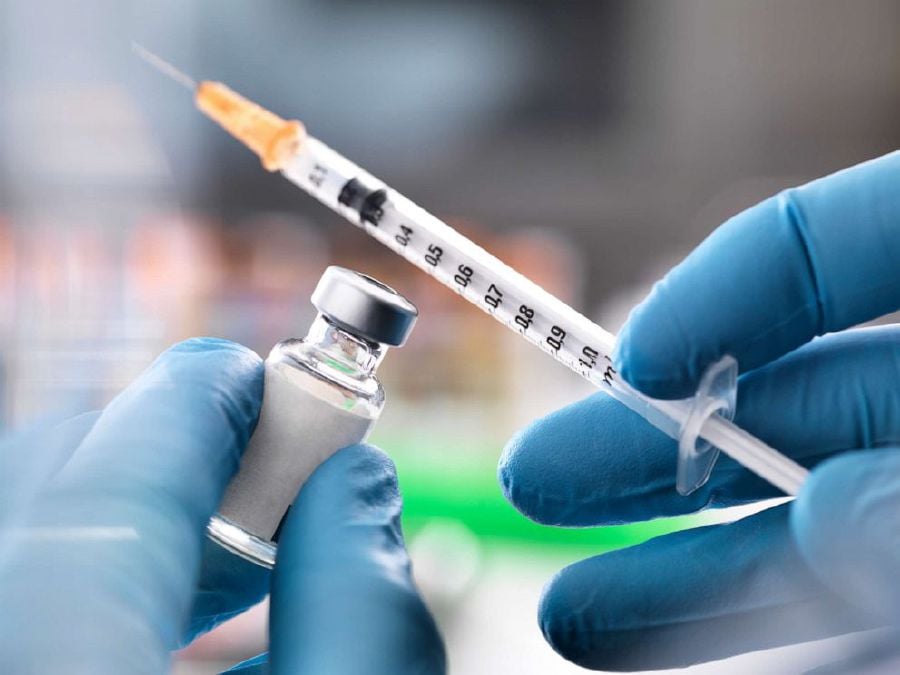
Jamal Hisham said Qdenga could be considered for approval in Malaysia, but should not be made mandatory.
"Qdenga should be used judiciously if it is approved. It can be recommended for high-risk individuals, such as outdoor workers like farmers and construction workers, and especially for those who work at dawn or dusk, when Aedes mosquitoes are most active."
The EU recommends European travellers or expatriates travelling to countries where dengue is endemic, like Indonesia and Malaysia, to take Qdenga before returning to their countries so that the disease can't be brought back and spread there, especially when the mosquito vector, Aedes aegypti, is present.
Dr Lokman Hakim said Takeda's Phase 3 data seemed to show no safety concerns with regard to it behaving like a primary infection.
"If our National Pharmaceutical Regulatory Agency approves the vaccine for use, then I do not see the necessity of repeating efficacy and safety trials."
He suggested conducting close post-market surveillance and a pilot programme in a small area.
He said even if a dengue vaccine was only 50 per cent effective, it would still significantly reduce risk of infection and transmission, contributing to better control.
"The cost of managing dengue runs into the billions in severe outbreak. One point for the Health Ministry to think about is what is the entry point for the vaccination if they decide to use it?
"The peak age group is between 20 and 30. It may be worth considering secondary school children, taking into account that HPV vaccination is already required for 13-year-olds.
"It is not cost effective to run a mass dengue vaccination programme. It should be prioritised in high-risk urban areas."
According to studies, the economic impact of dengue is substantial, including lost work days (7.2 to 8.8 days) and lost school days (3.2 to 4.1 days).
It is estimated that the total annual cost of dengue prevention and illness in Malaysia in 2009/2010 was RM777 million.
BUILDING RESILIENCE
Experts have outlined various ways in which Malaysia can build a resilient response against dengue fever.
Dr Awang Bulgiba said the nation's dengue vector control required a holistic approach.
He said this would include using biological (such as the use of the Wolbachia bacteria), environmental (like sub-soil drainage), source reduction (such as getting rid of used tyres), chemical (pesticides), personal protection (use of mosquito repellents), genetic (releasing genetically modified mosquitoes) methods and others (such as larvae traps).
"Equally important is health education. Relying on the authorities to control dengue is unsustainable as there are other public health priorities.
"Furthermore, the healthcare system is already stretched."
Dr Lokman said to fight mosquito-borne diseases, one must tackle all four factors in its transmission dynamics, but dengue had issues in all four, unlike malaria.
"We have no effective drug to kill the virus. Unlike malaria, Aedes mosquitoes bite when humans are active, making bed nets useless.
"Insect repellant does help to prevent mosquito bites but this has not been actively promoted.
"We, including local governments, must examine the environment, as well as construction sites, abandoned premises, poor or illegal waste disposal sites, and clogged rain gutters that perpetuate mosquito breeding.
"And there are issues with insecticides (which are becoming less effective in killing Aedes mosquitoes)."
He said there was a need for long-term measures through local government by-laws/regulations to ensure Aedes-free buildings and environment, and called for compulsory mosquito screening for newly constructed housing areas.
Malaysia, he said, also needed proactive intervention based on predictive models.
Several have been developed, including the D-MOSS system, which uses satellite weather data for better prediction.
Studies had shown that using mosquito repellent, covering water containers, removing stagnant water and using insecticides are effective dengue-prevention methods, but less than 80 per cent of people practised moderate to good dengue preventive measures.
Dr Zainal Ariffin highlighted the importance of using mosquito repellent and "doing the basics" as informed by the authorities to control the spread of dengue.
"Human behaviour is a crucial factor in Aedes breeding and dengue transmission," he said.
Associate Professor Dr Pratap Singhasivanon, an authority on the epidemiology of tropical diseases and vector-borne infectious diseases in Thailand, said besides vector control, environmental management and vaccines were crucial to tackling dengue.
"These three intervention measures, when taken together, will lead to a more sustainable reduction in transmissions at the community level."
PAPAYA LEAF JUICE IN DENGUE TREATMENT
Malaysia and other parts of South East Asia have long used papaya leaf juice as a treatment for dengue fever.
The Health Ministry had in 2016 said papaya leaves have been proven to improve platelet counts in dengue patients, and are unlikely to cause liver, kidney or heart failure.
"Clinical trials by the Institute for Medical Research in dengue patients (both normal dengue and hemorrhagic dengue) show that by taking a dosage of 30ml (two tablespoons) of juice from mature papaya leaves every day, platelet counts increase after three days," the ministry had said.
It was even reported that the ministry was working on developing papaya leaf extract capsules.
Dr Awang Bulgiba said there may be some benefit to such treatments but definitive evidence from large-scale clinical trials on papaya leaf juice effectiveness and safety seems to be lacking at the moment.
A 2021 study in 'Evidence-Based Complementary and Alternative Medicine' noted that carica papaya leaf consumption in adults is generally safe for short-term use though cautioned in pregnancy and people with liver impairment.
Another 2016 study in the 'International Journal of Applied & Basic Medical Research' found that Carica papaya leaf extract may improve the clinical condition of dengue patients.
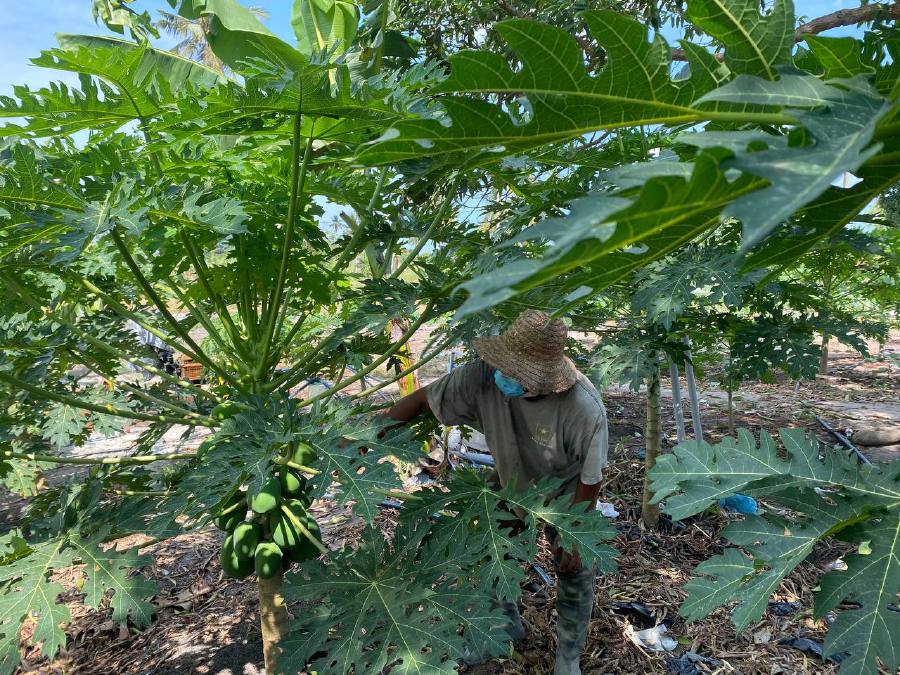
Dr Lokman said papaya leaf extract does not kill the virus, but modulates the blood system so that platelet levels can recover.
"So it is just supportive treatment," he said. He also expressed concern with standardisation of the extract if the public is taught to prepare themselves.
Federation of Complementary & Natural Medical Associations of Malaysia president Professor (adj) Datuk Seri Steve Yap, however, shared research evidence on the use of papaya leaf extract, noting that it seems to have dramatic effects on platelet count, total white cells (overall immunity), and neutrophils.
"Several countries in Asia have a long history of using natural plant extracts to treat this virus or to reduce the severity of its symptoms. Use of these plant extracts does not replace mainstream intensive care since dengue fever is a potentially life-threatening viral infection.
"Papaya leaf contains numerous phytochemicals. It's unclear if the pill form has the same potency as freshly prepared extract.
"In Pakistan, extracts from seeds of lemon and a range of citrus fruits were also found to be effective against larvae of the dengue fever mosquito."
Yap, who is also head of the School of Complementary & Traditional Medicine, University College Yayasan Pahang said some of dengue preventive methods include maintaining healthy blood sugar levels and body weight; applying herbal/natural mosquito repellent and wearing long sleeves and pants when there is an outbreak.
"Also, keep your house and surrounding areas clean without water retaining open containers around; and take one or two tablespoons of papaya leaf extract twice times/day when you hear of a dengue fever patient having earlier contact with you."
DENGUE: A NEGLECTED DISEASE OF LOWER INCOME COUNTRIES
Professor Neelika Malavige, Head of Dengue Global Programme and Scientific Affairs, Drugs for Neglected Diseases Initiative (DNDi) said Takeda's Qdenga vaccine appears promising based on existing data, but treatment should not be ignored.
"Qdenga does prevent dengue in a vast majority of people, but not in all cases. However, people still wonder if you need treatment when dengue vaccines are available. Why don't you ask the same question for Covid-19?
"That question is biased simply because it is an infection of lower middle income, developing countries."
DNDi is a not-for-profit research organisation developing new treatments for neglected patients.
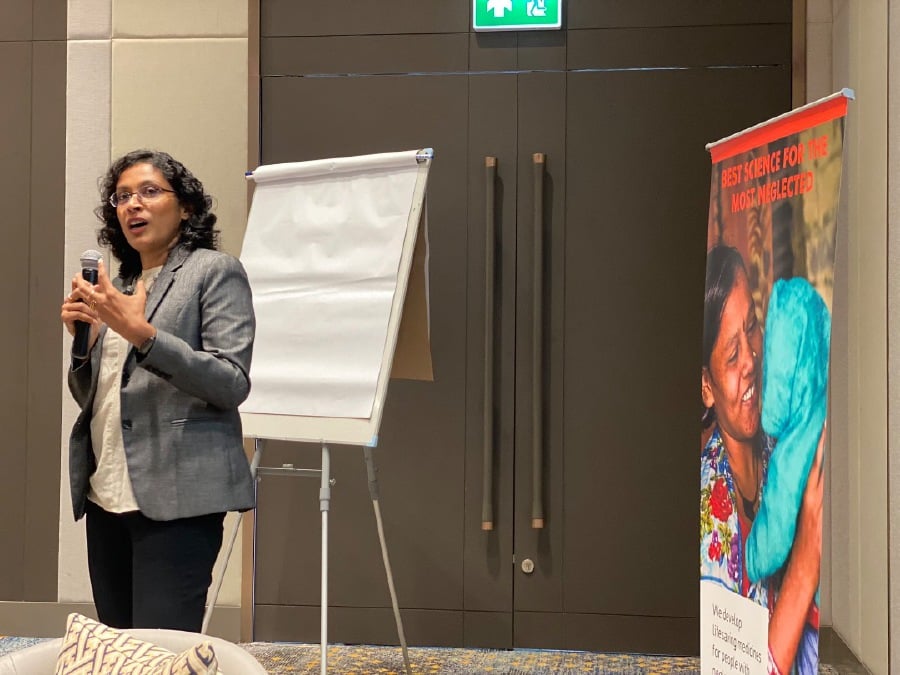
DNDi's South-East Asia director, Jean-Michel Piedagnel, however, said existing vector control and preventive measures should not hide the fact that there are no dengue treatments available due to lack of funding.
"Dengue affects hundreds of millions of people every year. They deserve treatment. These (vaccines, mosquito repellents and other existing measures) are still in the domain of prevention, but we tend to talk about them as the solution.
"We are used to a lack of investment in these diseases (dengue) because they mostly affect low- and middle-income countries. The thing is, if we invested enough in research and development, we would probably already have a treatment. We should ask for treatment."
Dengue is listed as a "neglected tropical disease" (NTD). The NTD has the following main features: (i) poverty-related, (ii) endemic to the subtropics and tropics, (iii) lacking public health attention, (iv) having poor research funding and shortcomings in R&D, (v) usually associated with high morbidity but low mortality, and (vi) often having no specific treatment available.

The lack of treatment options increases the risk of developing severe dengue (Dengue Haemorrhagic Fever (DHF) or Dengue Shock Syndrome (DSS) – which is potentially fatal, DNDi cautioned.
Warning signs include severe abdominal pain, persistent vomiting, marked change in temperature, hemorrhagic manifestations, or change in mental status (irritability, confusion, or obtundation).
DNDi has partnered with dengue-endemic countries, including Malaysia to find a safe, affordable, and effective treatment for this rapidly spreading climate-sensitive disease. Through this global collaboration, the organisation is working on joint projects to advance the pre-clinical development of new drug candidates and run clinical trials to test the most promising ones.
In 2003, DNDi's seven founding partners, including Malaysia's Health Ministry came together to respond to the frustration of doctors and health workers around the world faced with medicines that were ineffective, unsafe, unavailable, unaffordable – or that had never been developed at all.
Six other partners are the Kenya Medical Research Institute; Indian Council of Medical Research; Doctors Without Borders (Médecins sans frontières); Institut Pasteur; Fundação Oswaldo Cruz; and WHO's Special Programme for Research and Training in Tropical Diseases.


